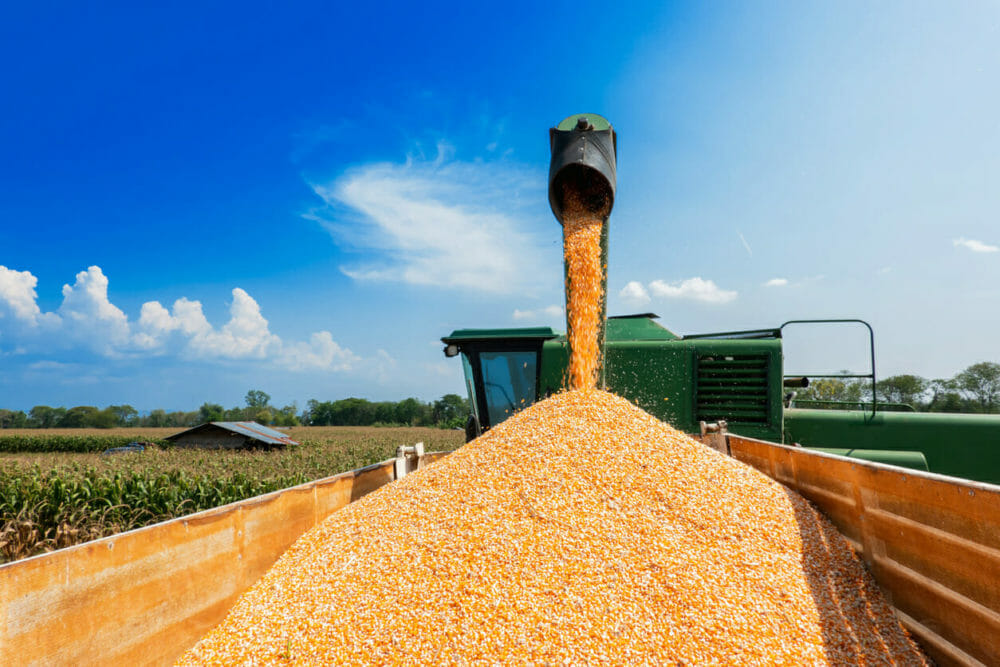From their office in Kansas City, Missouri, Kevin Lockett, Duane Cantrell and John Peryam sit in the heart of US livestock country and on the frontline of global food production disruption. And today AFN can reveal that the partners’ venture capital firm Fulcrum Global Capital has closed its first fund on $36 million to invest agri-foodtech startups.
Fulcrum raised the fund from a pool of high net worth investors to support early-stage upstream agriculture technologies in animal health, precision agriculture, food safety, and supply chain logistics to enable a healthier and more sustainable food system. The firm has already invested in four companies covering that spectrum.
“We’re focused on global food in a broad sense,” Cantrell told AFN. “We’re constantly asking: how can we improve production and yield, and how can we do it knowing we need to replace 50-plus years of gains from chemical additives and antibiotics. We’re looking at what goes in the ground all the way to delivery, so not just at any one point in the [supply] chain.”
Fulcrum occupies a corner of the agri-foodtech sector that has historically been underserved, in the short lifespan of the dedicated agri-foodtech investing world. The majority of funding for food-related ventures has flowed to downstream companies providing services for end businesses and consumers—like on-demand meal delivery and restaurant and retail tech. Only in 2019 did upstream ventures edge out their downstream peers in early-stage dealmaking, according to AgFunder’s latest industry investment report. (At the later stages, the upstream sector is still closing fewer deals and smaller ticket sizes.)
“Upstream is a less crowded field from a venture perspective. There is more money heading upstream now, but it’s still an area we feel is underserved and where there aren’t a lot of dedicated funds,” said Cantrell.
While this is Fulcrum’s first fund, its founding partners are leaning on the Fulcrum team’s more than 100 collective years of experience across the food and agriculture value chain. All three founding partners most recently worked for the Kansas Bioscience Authority, helping to attract and grow the bioscience sector as an economic growth engine for the state of Kansas.
Fulcrum’s geographic base in the US Midwest also gives them an edge, says Lockett.
“We know all about the animal health corridor because we’re here. The 300-mile stretch from Manhattan, Kansas to Columbia, Missouri has hundreds of animal health companies,” he said. That said, Fulcrum’s investment scope is geographically broad although its current portfolio is all in North America.
Its first four investments include a company in Waterloo, Canada that is using hyper-spectral imaging and artificial intelligence to help food processing plants identify foreign objects in food and helps meat companies better understand the composition of their products. The company, P&P Optica, fits into Fulcrum’s food traceability theme.
“The low hanging fruit is catching foreign objects, like tar off of a processing belt, white plastic from a glove, or glass, metal and wood chips. The machines can identify objects down to one millimeter in size,” explains Lockett. “It also allows them to see how much bone, cartilage or water content is in meat products, giving companies hard data for their premium beef, for example.”
Fulcrum’s early portfolio also includes CoverCress, which is developing a new, income-earning cover crop for farmers to plant in the off-season. The crop, called pennycress, has the potential to yield three marketable products: seed oil that is similar to canola oil and can be used for both the consumer and industrial markets; high-protein animal feed; and eventually whole-grain feed.
“It has the same positive effects on field health as a traditional cover crop,” says Lockett, referring to the land restorative qualities of off-season crops, “but it is also net-positive for farmers’ bottom line.”
Read more about CoverCress in Lauren Stine’s article about its last round investment round here.
Third in the portfolio is Nanoguard Technologies, which has developed cold plasma technology for grain treatment, and fourth is Green Dot Bioplastics, which is developing alternative plastic packaging that can completely degrade in untreated water sources, like oceans and lakes.
A key thread in Fulcrum’s investment thesis is sustainability, whether that’s for food producers or for the environment. Fulcrum’s team makes it clear that the firm is not an impact investor; rather, the partners invest with an eye toward sustainability because that is where the future of food and agriculture is heading. That’s largely because consumers today are more informed and are driving the direction of the sector, says Cantrell.
“Historically, it has been corporations and government determining how we do agriculture. Today the consumer has a much more significant voice,” he observed. “So we are looking at consumer demands and how to meet them, and [those demands] are ahead of where governments and corporations are.”





